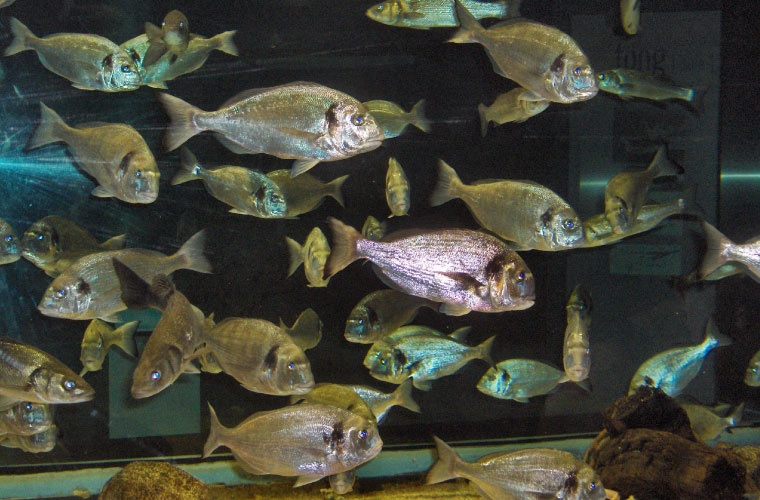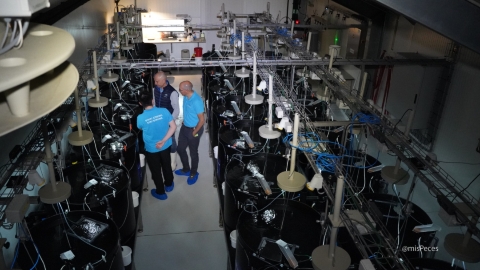
While noises from aquaculture operations are known to introduce stress in fish, studies indicate that other stimuli, such as classical music, have a positive impact on their behaviour and physiology. Researches on species like gilthead sea bream (Sparus aurata), European seabass (Dicentrarchus labrax), and common carp (Cyptrinus carpio) have shown that acoustic stimuli can significantly alter motility, blood glucose levels, lactate, and other biomarkers. This suggests that the acoustic environment plays a substantial role in the health and well-being of fish.
These findings highlight the need to better understand how each species responds to sound in order to optimise management practices and minimise negative environmental impacts on marine habitats.
For instance, a 2007 study by Papoutsoglou et al. investigated the effects of Mozart’s music on the physiology of common carp under various lighting conditions, demonstrating how classical music can positively influence growth and fatty acid composition.
Another study by Buscaino et al. in 2010 documented how ambient noises in aquaculture facilities impact motility and blood parameters such as glucose and lactate in gilthead sea bream and European seabass, showing clear stress responses to acoustic noise.
In 2014, Papoutsoglou et al. studied the response of gilthead bream to different musical pieces compared to white noise, finding that Mozart’s music could significantly improve growth and feed efficiency in recirculating systems.
Recirculating systems are valued for their sustainability and resource efficiency. However, the challenges associated with acoustic stress, particularly in high-density confinement environments, are not well understood.
These studies underscore the importance of adopting a holistic approach in aquaculture management that incorporates not just feed and water management but also the acoustic environment as a crucial factor in optimizing fish performance and welfare.
References:
Papoutsoglou et al., 2007. Effect of Mozart’s music (Romanza-Andante of ‘Eine Kleine Nacht Musik’, sol major, K525) stimulus on common carp (Cyprinus carpio L.) physiology under different light conditions. Aquacultural Engineering
Buscaino et al., 2010. Impact of an acoustic stimulus on the motility and blood parameters of European sea bass (Dicentrarchus labrax L.) and gilthead sea bream (Sparus aurata L.). Marine Environmental Research
Papoutsoglou et al., 2014. Gilthead seabream (Sparus aurata) response to three music stimuli (Mozart—‘‘Eine Kleine Nachtmusik,’’ Anonymous— ‘‘Romanza,’’ Bach—‘‘Violin Concerto No. 1’’) and white noise under recirculating water conditions. Fish Physiology and Biochemistry


